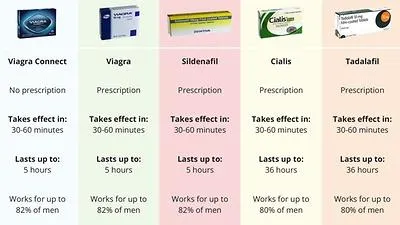
why do we get a penis erection
Understanding the Biological and Psychological Aspects of Male Arousal: Why Do Men Get Erections?
Erections are a natural and essential aspect of male sexual health and function. The phenomenon of an erection is not only a prerequisite for sexual intercourse but also a complex interplay of psychological, neurological, hormonal, and vascular factors. This article aims to delve into the intricacies of why men experience penile erections, shedding light on the biological mechanisms and psychological triggers involved, while addressing concerns related to erectile dysfunction and erectile impotence.
The Science Behind Erections
At the core of an erection is a finely-tuned process involving the central and peripheral nervous systems. When a man becomes sexually aroused, his brain sends signals to the nerves in the penis. These nerves then release chemicals that cause the blood vessels leading to the penis to dilate, increasing the blood flow. Simultaneously, the veins that usually drain blood away from the penis become compressed, trapping the blood within the penile tissues. This rapid influx of blood causes the penis to expand and harden, resulting in an erection.
The Role of Hormones in Male Arousal
Hormones, particularly testosterone, play a significant role in the regulation of sexual function in men. Testosterone is responsible for the development of male sexual characteristics and is a key player in the maintenance of sexual desire and the occurrence of spontaneous erections. A deficiency in testosterone levels can be linked to a decrease in sexual desire and may contribute to erectile dysfunction.
Psychological Factors Influencing Erections
While the biological process is crucial, psychological factors also significantly influence the ability to achieve and maintain an erection. Mental states such as stress, anxiety, and depression can interfere with sexual arousal and may lead to temporary or chronic erectile dysfunction. The psychological aspect of sexual arousal is complex, involving emotions, mood, and mental health status.
Erectile Dysfunction: A Common Concern
Erectile dysfunction (ED), also known as erectile impotence, is a condition where a man is unable to achieve or maintain an erection adequate for sexual intercourse. ED can result from a variety of causes, including but not limited to, cardiovascular disease, diabetes, hormonal imbalances, neurological disorders, certain medications, and psychological issues. It is a common concern that affects men of all ages, with prevalence increasing with age.
The Impact of Lifestyle on Erectile Health
Lifestyle factors can significantly impact erectile function. Poor diet, lack of exercise, smoking, excessive alcohol consumption, and illicit drug use can all contribute to the development of ED. Adopting a healthy lifestyle can improve overall health and, in turn, enhance erectile function.
Treatment Options for Erectile Impotence
For those experiencing erectile impotence, various treatment options are available. These range from oral medications, such as phosphodiesterase type 5 inhibitors, to vacuum erection devices, penile injections, and even surgical interventions. It is crucial for men facing such issues to consult with a healthcare provider to determine the underlying cause and appropriate treatment.
Prevention and Management of Erectile Issues
Preventive measures for maintaining good erectile health include regular exercise, a balanced diet, maintaining a healthy weight, avoiding tobacco and excessive alcohol consumption, and managing stress. Regular medical check-ups can also help detect and manage health conditions that might contribute to erectile dysfunction.
The Importance of Open Communication
Open communication with sexual partners and healthcare providers is vital for addressing concerns related to erections and sexual health. Discussing these topics without embarrassment or stigma can lead to better understanding, effective management, and improved sexual relationships.
Conclusion
Erections are a complex result of multiple bodily systems working in tandem, influenced by both biological and psychological factors. Understanding why men get erections is crucial for recognizing the normalcy of this sexual function and for identifying when there may be an underlying issue, such as erectile dysfunction or impotence. By acknowledging the various facets of male sexual health and the potential challenges, men can take proactive steps towards maintaining their sexual well-being and seeking help when necessary. It is essential to remember that erectile issues are common and treatable, and there is no shame in seeking assistance for these concerns.